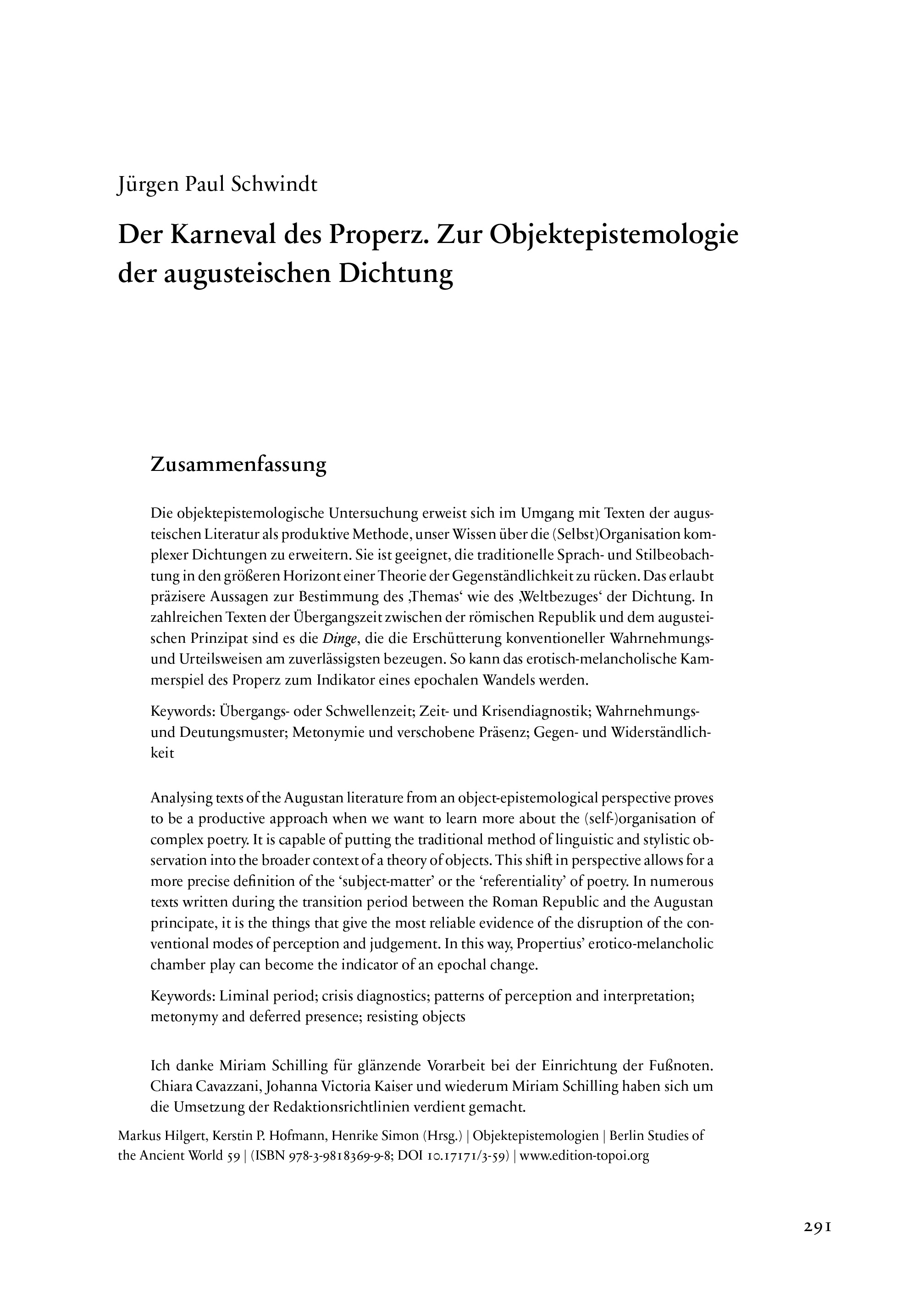Der Karneval des Properz
Zur Objektepistemologie der augusteischen Dichtung
Analysing texts of the Augustan literature from an object-epistemological perspective proves to be a productive approach when we want to learn more about the (self-)organisation of complex poetry. It is capable of putting the traditional method of linguistic and stylistic observation into the broader context of a theory of objects. This shift in perspective allows for a more precise definition of the ‘subject-matter’ or the ‘referentiality’ of poetry. In numerous texts written during the transition period between the Roman Republic and the Augustan principate, it is the things that give the most reliable evidence of the disruption of the conventional modes of perception and judgement. In this way, Propertius’ erotico-melancholic chamber play can become the indicator of an epochal change.
Die objektepistemologische Untersuchung erweist sich im Umgang mit Texten der augusteischen Literatur als produktive Methode, unser Wissen über die (Selbst)Organisation komplexer Dichtungen zu erweitern. Sie ist geeignet, die traditionelle Sprach- und Stilbeobachtung in den größeren Horizont einer Theorie der Gegenständlichkeit zu rücken. Das erlaubt präzisere Aussagen zur Bestimmung des ‘Themas‘ wie des ‘Weltbezuges‘ der Dichtung. In zahlreichen Texten der Übergangszeit zwischen der römischen Republik und dem augusteischen Prinzipat sind es die Dinge, die die Erschütterung konventioneller Wahrnehmungs- und Urteilsweisen am zuverlässigsten bezeugen. So kann das erotisch-melancholische Kammerspiel des Properz zum Indikator eines epochalen Wandels werden.

